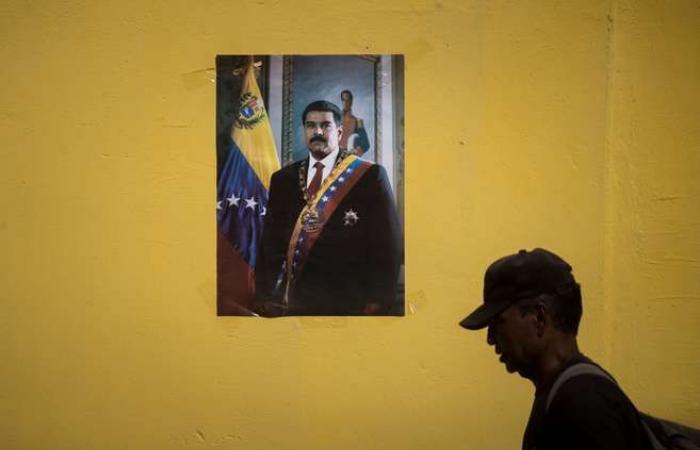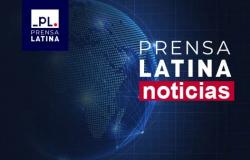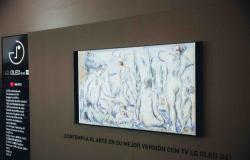Photograph dated June 8, 2024 showing people participating in an event in support of Nicolás Maduro, in Caracas (Venezuela).
Photo: EFE – Miguel Gutierrez
In Venezuela there is a “deterioration of the rule of law in a context of serious human rights violations,” which has resulted in an electoral process with “insufficient democratic conditions.” These phrases were pronounced by Jordi Cañas, head of the European Parliament’s observation in the 2021 regional elections in Venezuela, when presenting the report of the Electoral Observation Mission (EOM) of the European Union (EU).
The findings of the report were so overwhelming with the Maduro government that it could not be presented in Caracas, although the agreement between the National Electoral Council (CNE) and the EU stipulated it.
The 2021 EU EOM was the latest intensive deployment in Venezuela of a professional and technical organization that applies a rigorous methodology to account for how an electoral process is held. Before this, we have to go back to the 2006 presidential elections, in which different specialized organizations participated, such as the Organization of American States (OAS).
This EOM allowed for an exhaustive analysis of the conditions under which electoral processes are held in Venezuela. Although it was a regional election, so the power of the national government was not directly threatened, the systematic irregularities and bad practices promoted by the ruling party to prevent fair competition to the detriment of the opposition forces could be verified.
The MOE report provides 23 recommendations, although it considers that 7 are fundamental or priorities if we want to move towards free and competitive elections: 1) separation of powers; 2) suppress the prerogative of the Comptroller General of the Republic to strip citizens of their political rights; 3) voter education campaign to promote confidence in voting; 4) reinforce the sanctioning powers of the CNE; 5) balance State media campaign coverage; 6) repeal the Law against Hate, for Peaceful Coexistence and Tolerance, and 7) improve the information campaign for citizens about their selection as polling station members.
Evidently, in light of the 2024 process it is clear that the Venezuelan government has not taken these recommendations seriously. But not only that, but it has delved so deeply into the arbitrariness that the former head of the Comptroller General of the Republic who was in charge of disqualifying leaders such as María Corina Machado or Henrique Capriles is now the highest representative of the Electoral Power.
On the other hand, no efforts have been made to reinforce the rule of law; The coverage of the public media benefits the ruling party and covers the opposition only to discredit it, and if it is the law against hate, not only was it not repealed but currently the National Assembly threatens with the approval of the law against fascism and the law to regulate civil society, both instruments designed to criminalize and censor democratic sectors.
In addition to this, the registration and updating of data in the Electoral Registry has been vulgarly blocked, leaving more than five million Venezuelans residing abroad, and millions in Venezuela, off the register.
Other issues that worried the EU EOM, such as the extortionate use of the Plataforma Patria, the obstacles to Machado’s political participation (the only woman who claimed to be a candidate and won the opposition primaries was illegally disqualified), the indiscriminate use of the State resources in favor of the ruling party or the limitations on electoral observation were ignored.
To all this context that seriously affects (and we will see if it definitively) the integrity of the electoral process, we must add the persecution that María Corina Machado’s team has suffered, which has left the unfortunate balance of several political prisoners, six asylum seekers in the embassy of Argentina in Caracas and dozens of small merchants sanctioned for collaborating with the activities of Machado and the opposition in the interior of the country.
The European Union even lifted individual sanctions against CNE officials, including its head, Elvis Amoroso, as an offering to receive an EOM. However, we received the answer this Tuesday, May 28, just two months before the elections, when Amoroso himself announced the revocation of the invitation.
Why doesn’t Maduro want an EU mission? It is not, as Amoroso explained, because of its “historical colonialist position” and the imposition of sanctions. Let us remember that the head of the CNE was sanctioned in 2020, and yet in 2021 Venezuela received the European delegation.
The real reason is that electoral conditions are even worse than in 2021, and popular support for the opposition is much stronger. Different polls assure that Edmundo González has a voting intention 30 points higher than that of Maduro.
Elections with arbitrariness, bad practices, advantageousness, persecution and the entire autocratic catalog that is expected, but observed by the international community and controlled by the opposition parties, are impossible for Maduro to win.






